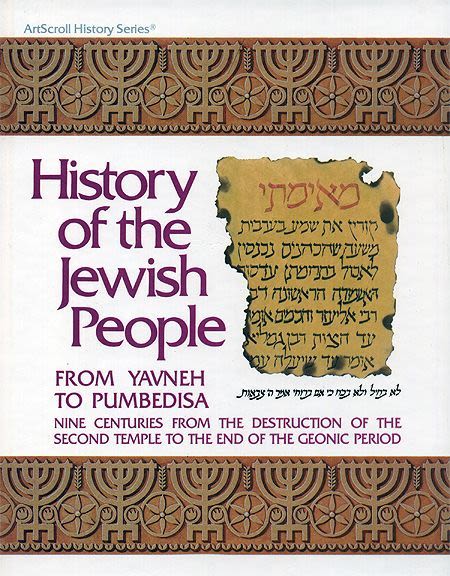
Teshuva and Desire
Through regret and teshuva, a person has the power to repair all blemishes… Through the stumbling itself, he can arouse himself to an even greater level of yearning.

Rabbi Elazar Mordechai Kenig, shlita
Leader of the Breslov Community in Tsfat, Israel
Translated and adapted from a talk given in Tsfat, 5760/2000
Based on Likutei Halachot, Arev, Halacha 3
by Rabbi Noson Sternhartz, z”l
Ratzon, Part 2
Teshuva and Desire
Even when one stumbles by not acting according to G-d’s Desire, there is a spiritual remedy: teshuva – repentance, or return. The first step of teshuva is regret. One realizes that he would have been better off if he had not acted a certain way. He acknowledges that he really has no desire for what he did. Through teshuva, a person can repair anything.
Ratzon is always the underlying factor. Our will and desire always should be for G-d, that we should act within the framework of Torah. Through this, we have the power to elevate all material desires to the Creator. We must greatly strengthen our fear and awe of G-d, and stay far away from anything forbidden. Every stumbling blemishes the soul tremendously and creates distance from G-d. We then may be drawn to unholy desires entirely, G-d forbid. However, again, with ratzon, everything can be restored to holiness – to such an extent, our sages tell us, that our sins actually become transformed to merits. Therefore, our master, Rebbe Nachman, tells us that it is forbidden to despair. Because the problem of our misdeeds originated with blemished desire, we now can come to an even stronger desire for G-d. The farther someone is from G-d, the more he needs to awaken his desire for Him.
This is why sometimes a person has no desire for G-d, Torah, or prayer. Since he blemished the quality of ratzon, he now must reawaken his ratzon for the right thing, and express it with a settled mind through what is permitted. When a person realizes that this world amounts to nothing, he will not be drawn after worldly materialism and cravings. Then within the distance itself, a person again begins to long and yearn for G-d. Through regret and teshuva, a person has the power to repair all blemishes by transforming his sins into merits, since the fundamental blemish was in his desire. Through the stumbling itself, he can arouse himself to an even greater level of yearning.
Desire Has No Limits
We spoke in the beginning about how the Baal Shem Tov praised the spiritual level of his daughter Udel because her only desire was to please G-d. Likewise, it is vital to continually awaken and strengthen our own desire to do the will of the Creator. The truth is that everyone wants this, but in reality, one person cannot do everything. Sometimes one is prevented from doing a mitzvah or good deed because of various circumstances, even if he is actually capable of doing it. However, there is no limit to how much one’s desire can be awakened. For example, with tzedakah, how much can one person give? We can only give according to our ability. However, even if we don’t have what to give, we can use our strong desire to arouse others to give. Our Sages say, "Greater is the person who helps others to give than the one who gives," since this shows the strength of his desire to give. Who can prevent someone from desiring or thinking that if all the world’s silver and gold were his, he would give it to the Creator? A person can desire without limitation. Of course, since we live in a world of boundaries, we need to be very careful about how intense desire is channeled. Nonetheless, it is crucial that every single person knows that desire for G-d is the ultimate perfection and completion of a human being.
 There are people who waste their lives for the sake of physical desires, but the Jewish people know that there is a Creator. We need to ensure that our entire ratzon is only for G-d. King David says in the book of Psalms, "My soul yearns, indeed it pines, for the courtyards of G-d" (Psalms 84:3). He wants G-d without limit – he yearns to give up his soul to G-d. He also says, "My soul thirsts for You, my flesh longs for You" (Psalms 63:2). A person’s soul can yearn for G-d without limit. Coming to this level of desire for G-d is the completion of Man.
There are people who waste their lives for the sake of physical desires, but the Jewish people know that there is a Creator. We need to ensure that our entire ratzon is only for G-d. King David says in the book of Psalms, "My soul yearns, indeed it pines, for the courtyards of G-d" (Psalms 84:3). He wants G-d without limit – he yearns to give up his soul to G-d. He also says, "My soul thirsts for You, my flesh longs for You" (Psalms 63:2). A person’s soul can yearn for G-d without limit. Coming to this level of desire for G-d is the completion of Man.
Practically, there are a number of ways a person can work to attain proper desire. Foremost is the observance of the Torah, since desire is articulated through the mitzvot we perform. There is also the idea of expressing desire through song, which is the essence of the Book of Psalms. Then there is prayer and hitbodedut as a vehicle to express one’s desire and yearning to do G-d’s Will. Hitbodedut is speaking to G-d in simple terms in our own native language, pouring out our hearts to Him.
May G-d grant us understanding to see the richness of life in this world. We can be genuinely happy, without pressure or anger. If anger surfaces with all its accompanying difficulties, again, the advice is to put ourselves aside and strengthen our faith in the fact that everything in the world comes from the Creator, Who governs every detail according to His will and desire. The root of this desire is contained in the 613 mitzvot. Our main task in the world is to perform the mitzvot that G-d gave in His desire for us.
(Reprinted with kind permission of the Breslov Center, www.nachalnovea.com)













Tell us what you think!
Thank you for your comment!
It will be published after approval by the Editor.